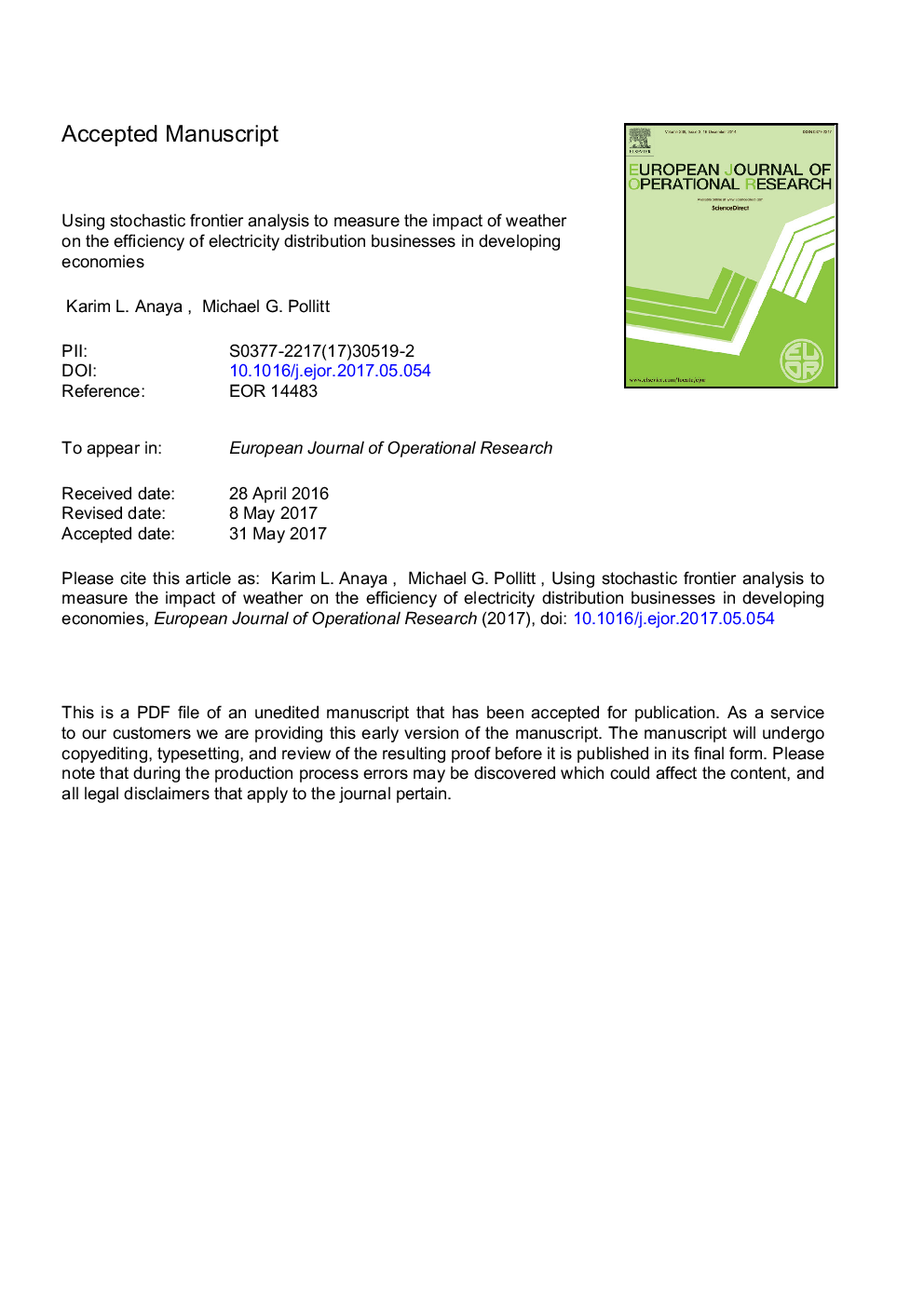| Article ID | Journal | Published Year | Pages | File Type |
|---|---|---|---|---|
| 4959361 | European Journal of Operational Research | 2017 | 38 Pages |
Abstract
This paper analyses the influence of weather variables on the efficiency of electricity distribution companies in Argentina, Brazil, Chile and Peru, covering 82 firms which represent more than 90 percent of the distribution market of energy delivered for the period 1998-2008. Stochastic frontier analysis (SFA) is applied using a translog input distance function. Two different approaches are evaluated: weather in the production function and weather in the inefficiency term. The efficacy of one over the other is determined using nested models. Weather data are collected from meteorological stations (429) and NASA (3423 coordinates). A geographic information system (GIS) is used for locating the firms' service areas and their weather conditions. A combination of cost only and cost-quality models is proposed. For cost only models, the results suggest that on average there is a significant increase in measured efficiency when weather is incorporated in the production function. Under the cost-quality models, on average the effect of weather is much lower. This suggests that firms have internalised the effects of weather and have adapted their networks to the environment in which they operate. A company-level analysis indicates that across models a significant number of companies are affected by weather. Regulators are advised to make proper adjustments of efficiency scores when specific firms face important efficiency changes due to weather.
Keywords
Related Topics
Physical Sciences and Engineering
Computer Science
Computer Science (General)
Authors
Karim L. Anaya, Michael G. Pollitt,
